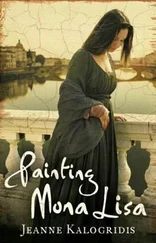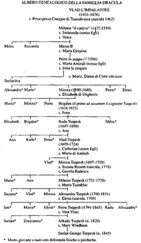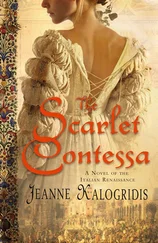
Jeanne Kalogridis
The Borgia Bride
© 2005
FOR JANE JOHNSON
FOR THE CHANCE

***

***
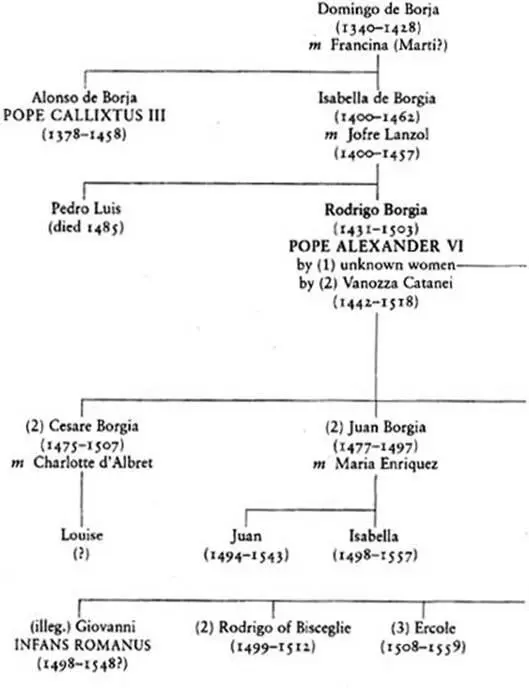
***
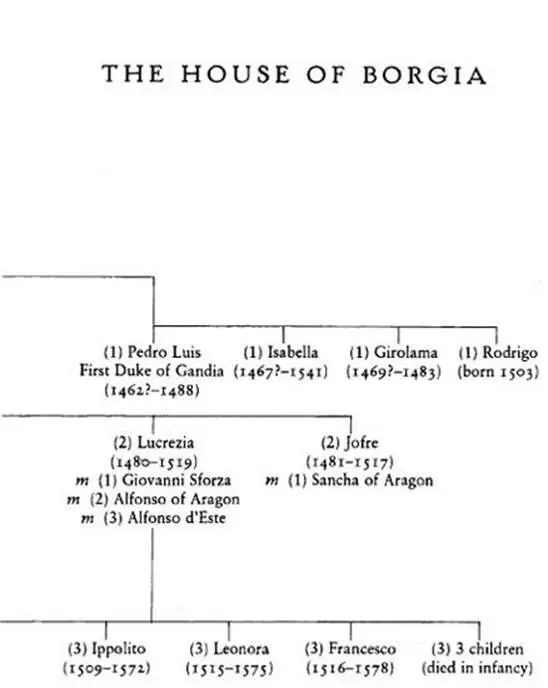
***
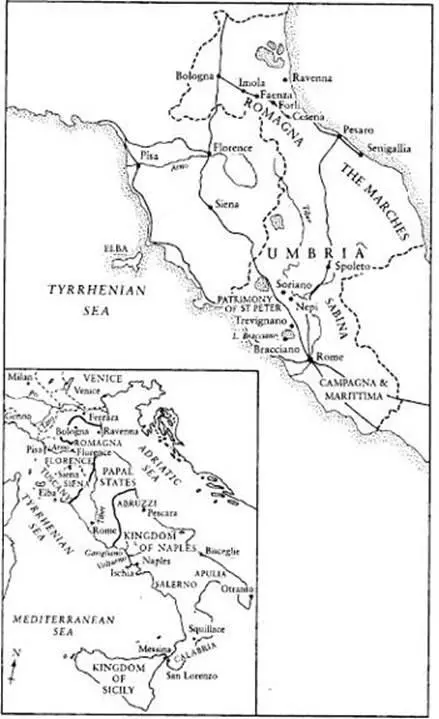
The canterella , it is called: a poison powder so deadly a mere sprinkling of it can kill a man, strike him down in a matter of days. The effects are ghastly. One’s head aches as if in a vice; the vision blurs; the body quakes with fever. The bowels release a bloody flux, and the gut clamps tight in an agony that makes the victim howl.
Rumour says only the Borgias know its secret: how to compound it, store it, administer it so as to hide the taste. Rodrigo Borgia-or shall I say, His Holiness Alexander VI-learned the secret from his favourite mistress, the fiery-haired Vannozza Cattanei, when he was still a cardinal. Rodrigo’s elder brother, Pedro Luis, would undoubtedly have been elected pope…were it not for subtle and well-timed administration of the canterella.
Being generous parents, Rodrigo and Vannozza shared the recipe with their offspring-at the very least with their sweet-faced daughter, Lucrezia. Who better to lull the wary into carelessness than she with the demure smile and the soft voice? Who better to murder and betray than she who is hailed as Rome’s greatest innocent?
The ‘Borgia fever’ has decimated Rome like the plague, thinning the ranks of prelates until every cardinal with land and a bit of wealth lives in terror. After all, when a cardinal dies, his riches go at once to the Church.
And it takes a great deal of wealth to fund a war. A great deal of wealth to amass an army large enough to capture every city-state in all of Italy, and declare oneself leader not only of things spiritual, but of things secular. This pope and his bastard son, Cesare, want more than Heaven; they will have Earth, as well.
In the meantime, I sit in the Castel Sant’Angelo with the other women. From my chamber window, I can see the Vatican nearby, the papal apartments, and the Palazzo Santa Maria where I once lived with my husband. I am allowed to roam the grounds and am accorded courtesy, but there is no more status, and I am under guard, a prisoner. I curse the day I first heard the name Borgia; I pray for the day when I hear the bells toll for the old man’s death.
But there is freedom to be had. At this very moment, I hold the vial up to the bright Roman sun that streams into my generously-appointed apartment. The container is Venetian glass, emerald-coloured, shining like a gem: the powder inside is drab bluish-grey, opaque.
Canterella , I whisper. Beautiful, beautiful canterella, rescue me…

***
I am Sancha of Aragon, natural daughter of the man who became Alfonso II, King of Naples, for a year and a day. Like the Borgias, my people came to the Italian peninsula by way of Spain, and like them, I spoke Spanish at home and Italian in public.
My most vivid childhood memory was formed at the end of my eleventh summer, on the nineteenth of September, the year of our Lord 1488. It was the Feast Day of San Gennaro, patron saint of Naples. My grandfather, King Ferrante, had chosen that particular date to celebrate the thirtieth anniversary of his ascension to the Neapolitan throne.
Normally, we royals did not attend the event held in Gennaro’s grand Duomo, the cathedral built in his honour. We preferred to celebrate in the comfort of the Chiesa Santa Barbara, the church enclosed within the magnificent walled grounds of the royal palace, the Castel Nuovo. But that year, my grandfather deemed it politic to attend the public ceremony, given the anniversary. Thus, our large entourage processed into the Duomo, watched at some distance by the zie , the aunts, di San Gennaro , the wailing, black-clad women who pleaded with the Saint to protect and bless Naples.
Naples needed blessing. It had been the site of many wars; my family of Aragonese royalty had won the city through bloody battle only forty-six years prior. Although my grandfather was peacefully handed his throne by his father, the revered Alfonso the Magnanimous, Alfonso had violently wrested Naples from the Angevins, supporters of the Frenchman Charles of Anjou. King Alfonso was beloved for rebuilding the city, for constructing grand palaces and piazzas, strengthening the walls, restocking the royal library. My grandfather was less loved. He was more interested in maintaining a strong hold on the local nobles whose veins held Angevin blood. He spent years in petty wars against different barons, and never came to trust his own people. In turn, they never came to trust him.
Naples had also been the site of earthquakes, including one witnessed in 1343 by the poet Petrarch, which razed half the city and sank every ship in the normally placid harbour. There was also Monte Vesuvio, which was still prone to eruptions.
For these reasons, we had come to beseech San Gennaro that day, and, with luck, to witness a miracle.
The procession into the Duomo was no less than grand. We royal women and children entered first, escorted by blue-and-gold clad guards to the front of the sanctuary, past the black-clad commoners who bowed before us like wheat beneath the wind. Ferrante’s Queen, the nubile Juana of Aragon, led us, followed by my aunts Beatriz and Leonora. They were followed by my then-unmarried half-sister Isabella, who had been assigned the care of myself and my eight-year-old brother, Alfonso, as well as Ferrante’s youngest daughter, my aunt Giovanna, born the same year as I.
The older females were dressed in the traditional garb of the Neapolitan noblewoman: black gowns with full skirts, tightly-laced bodices, and sleeves narrow at the shoulders then blossoming to the width of church bells at the wrist, so that they draped downward well past the hip. We children were allowed colour: I wore a gown of bright green silk with a brocade bodice laced tightly against absent breasts. Around my neck hung pearls from the sea, and a small gold cross; on my head was a veil of black gossamer. Alfonso wore a pale blue velvet tunic and breeches.
My brother and I walked hand-in-hand just behind my half-sister, careful not to trip on her voluminous skirts. I did my best to look proud and self-assured, my gaze restricted to the back of Isabella’s gown, while my brother stared freely out at the assembly. I allowed myself one sidewise glance, at the great cracks in an archway between two large marble columns; above it, a round portrait of Saint Dominic had split in two. A scaffolding stood just beneath it, marking the last of the repairs from an earthquake that had ravaged the Duomo two years before Ferrante came to power.
Читать дальше
Конец ознакомительного отрывка
Купить книгу









